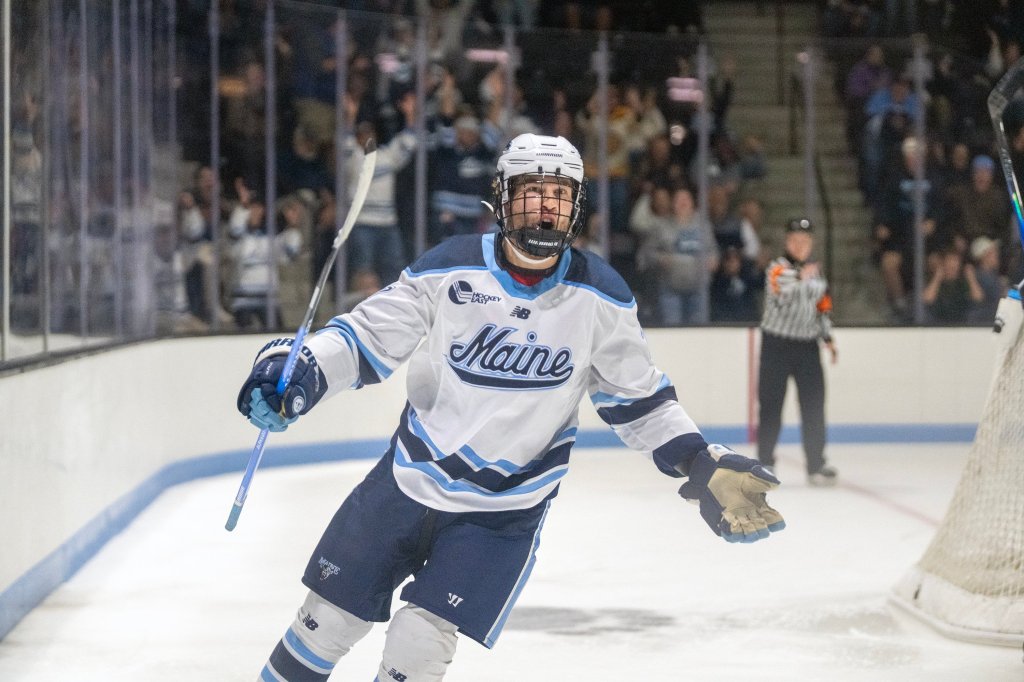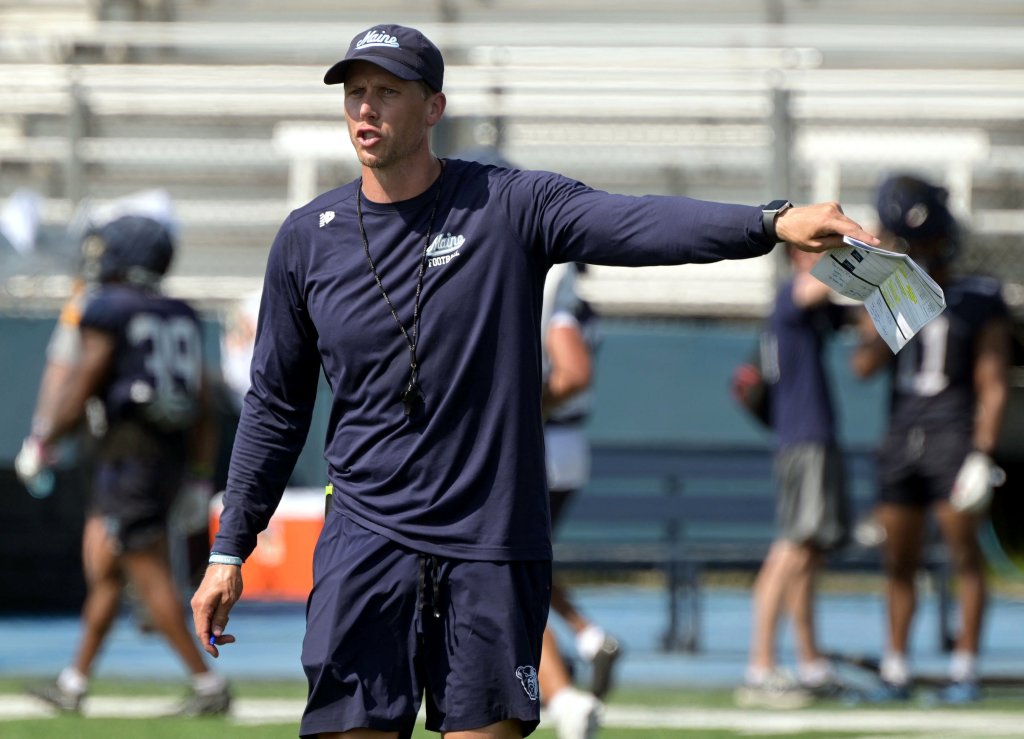
It’s been more than four years since student-athletes have been allowed to capitalize on their name, image and likeness (NIL) while retaining eligibility to compete in NCAA sports. Even so, NIL deals are still rare at the University of Maine.
This year, just 77 out of 434 UMaine student-athletes have at least one NIL deal, according to the university. While that’s a jump from the 15 in 2021-22, the first year NILs were allowed, it’s still only 18% of the Black Bears student-athlete population.
Lucrative deals are still found primarily by athletes at schools competing in the Power Four conferences, the Big Ten, Big 12, SEC and ACC.
On3.com, a digital media company that tracks NIL deals, estimated that in his one season at Duke, Newport native Cooper Flagg’s annual NIL valuation was $4.8 million, the second highest in college sports behind University of Texas quarterback and American football legacy Arch Manning.
Deals like that are the exception. For an overwhelming number of student-athletes, NIL is a chance, as UMaine linebacker and Leavitt Area High graduate Noah Carpenter said, to earn a little spending money.
Carpenter has appeared at a few card shows and autograph sessions, along with his Black Bear teammate and fellow Leavitt grad Jace Negley, and is scheduled to appear at the Northeast Sports Card Expo at the Portland Expo Oct. 18-19. According to Greg Glynn, owner of Pliable, a marketing firm that helps athletes connect with NIL opportunities, athletes appearing at the upcoming card show will be paid between $400 and $1,000.
Carpenter and Negley also have deals to promote Athletes.org, a players association for college athletes. Charlotte Belanger, a member of the UMaine women’s soccer team, has a partnership with Aroma Joe’s, a chain of coffee shops, in which she’s paid in cash and gift cards.
Brandon Holt, a captain with the men’s ice hockey team, has a deal with Orono Brewing Company. He makes videos for the restaurant’s social media feeds, including one he and teammate Max Scott made this summer in which they wake surfed in hockey gear.

In return, Holt said he gets the employee discount at the restaurant and some merchandise. Carter Peevy, the starting quarterback on the football team, also has shot a video for Orono Brewing. It’s not a big time commitment and is fun, Holt said.
“It’s awesome to be part of the community and use my reach that way,” Holt said.
Flagg‘s twin brother, Ace, is now a freshman on the UMaine men’s basketball team. His NIL deals do not approach those of his brother, whom the Dallas Mavericks made the No. 1 pick in the NBA Draft in June, but Ace has a few, including a deal the brothers have with Bangor Savings Bank, as well as the youth basketball camp they’ve put on at UMaine each of the past two summers.
UMaine did not make Ace Flagg available to comment on NIL deals.
Coaches say major NIL opportunities, or the lack thereof at UMaine, have not been a big issue in recruiting.
“I had a couple parent inquiries, ‘Hey what’s the NIL opportunity here?’ Those were only a handful of times,” football coach Jordan Stevens said. “We’re finding guys we have to develop and they know coming here, what that looks like. It hasn’t come up much at the high school level, more in the transfer portal.”
Last spring, the men’s basketball team lost two starters, guards Jaden Clayton and AJ Lopez, via the transfer portal, which allows student-athletes to switch schools without losing any eligibility. Coach Chris Markwood said he thinks NIL potential was a factor in each player’s decision to leave. Clayton is now at Pacific (Stockton, California), while Lopez is at Richmond.
“That’s the landscape right now. Not just our level. It’s up to the high major level,” Markwood said. “It’s my job as a head coach to fight that and continue to build a culture where guys are going to stay.”
Almost as soon as NIL deals were allowed, schools around the nation started collecting money from donors, alumni and businesses to create promotional and endorsement opportunities for athletes.
At UMaine, the Bear Down Collective serves that purpose. The group isn’t directly affiliated with UMaine, said Alex Gray, one of the founders.
In the few years it’s been organized, the collective has brought in $600,000 that can go toward Black Bear NIL deals, Gray said, and he expects to go over the $1 million mark in the coming years. If a business wants its contribution to the collective to go to a specific sport, it will.
Gray also said he expects more federal regulations that could change the NIL landscape. There are multiple bills before Congress that would create national NIL standards, if passed into law.
“What that will look like a year from now, who knows? The regulatory landscape changes every day,” Gray said.

We invite you to add your comments. We encourage a thoughtful exchange of ideas and information on this website. By joining the conversation, you are agreeing to our commenting policy and terms of use. More information is found on our FAQs. You can modify your screen name here.
Comments are managed by our staff during regular business hours Monday through Friday as well as limited hours on Saturday and Sunday. Comments held for moderation outside of those hours may take longer to approve.
Join the Conversation
Please sign into your CentralMaine.com account to participate in conversations below. If you do not have an account, you can register or subscribe. Questions? Please see our FAQs.